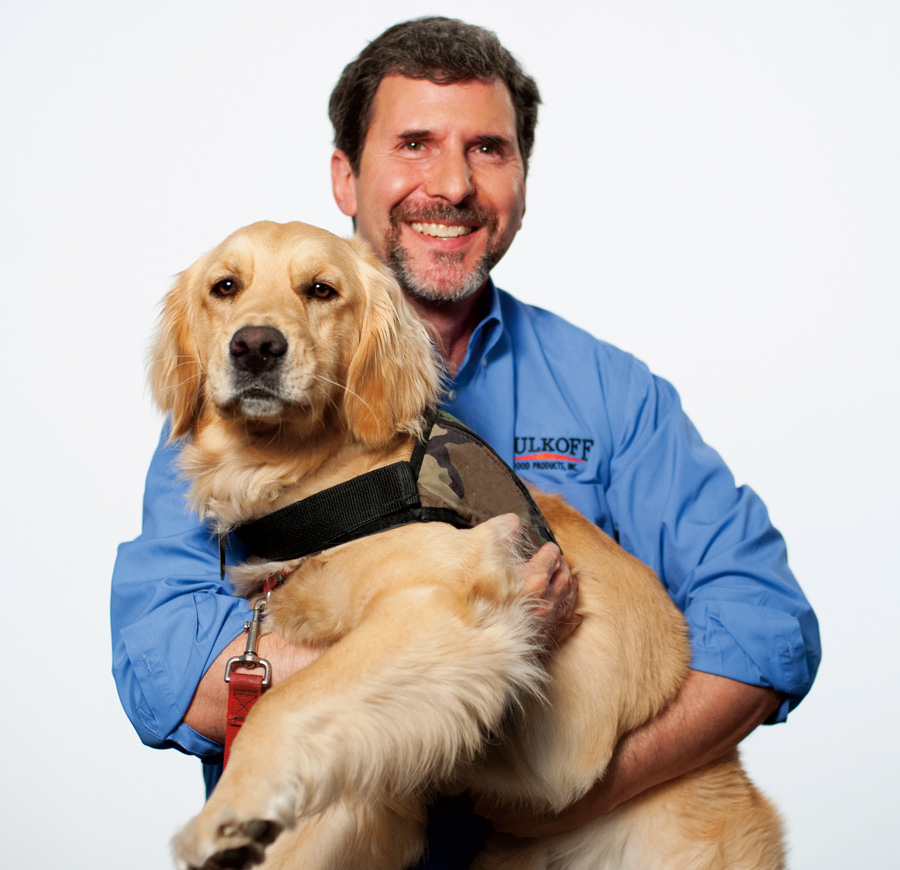“I started by picking up poop in the yard; that was my first assignment,” he says.
Tulkoff, who now runs his family’s food-manufacturing business in Baltimore, is a founding board member for Valor Service Dogs, which trains and donates golden and Labrador retrievers for combat-wounded veterans of post-9/11 conflicts.

He first turned to a Baltimore-area service dog organization, where he started on cleaning detail before managing volunteers and training a dog. There he met Carol Lansford, an animal behaviorist whose husband, Justin, lost his left leg during his Afghanistan service. After Justin completed his Walter Reed rehabilitation, the couple founded Valor Service Dogs in Tampa, Fla., and asked Tulkoff to join the board in 2015.
Valor has since trained more than 20 dogs for veterans with mobility challenges and PTSD. Each completes a training regimen lasting up to two years that’s tailored to the needs of each recipient.
Even minor behavioral issues like gobbling fallen food can result in a dog failing the program (those that don’t make it are donated as support animals for military and first-responder families). The organization has a small annual budget and relies on volunteers to help with many aspects of training the dogs, Tulkoff says.
To help, he offers financial support and business connections. One was with celebrity chef Robert Irvine, for whom Tulkoff’s company produced some private-label foods. Irvine’s foundation has sponsored training for seven service dogs, the first donated in February.
As troop withdrawals abroad have decreased demand for service dogs to assist veterans, Valor is also serving injured law-enforcement officers and first responders. Tulkoff reads and reviews each story. Every application is heartbreaking, he says, but the end result makes his involvement worthwhile.
“To know that the dog enriches their lives, helps them get out the door, reconnects them with their family — it’s just a great feeling,” he says.
